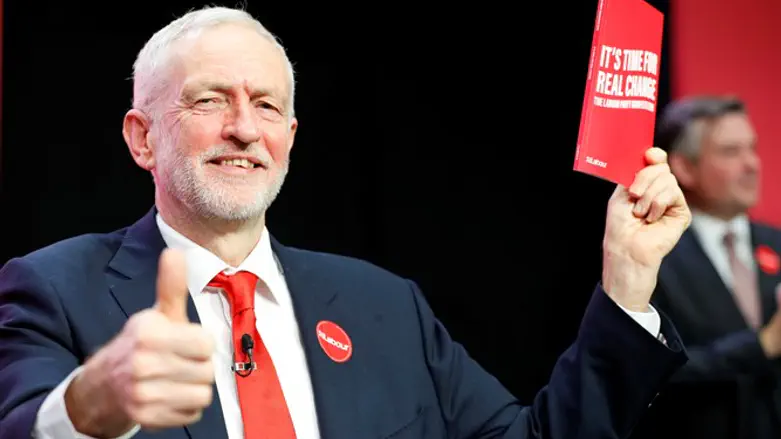
British Labour MPs who lost their seats in the recent general election have called for "fundamental change" at the top of the party and cited Labour's "unwillingness" to stand up to anti-Semitism as one of the issues that led to the party’s loss in the election, the BBC reports.
In a letter to the Observer, the group said an "unflinching" look at the causes of Labour's defeat was now needed, rather than a "simple review".
Labour recorded its worst performance, in terms of seats, since 1935 in the December 12 election, as a string of constituencies in its traditional Northern strongholds fell to the Conservatives.
Some MPs who lost their seat have blamed leader Jeremy Corbyn's unpopularity with voters, while others have argued Brexit was the main reason for the party's defeat.
A review launched by Labour Together - a network of activists and figures in the party that includes former leader Ed Miliband - will view attempts to pin the blame on a single cause as simplistic and wrong.
But in their letter, defeated MPs including Mary Creagh and Anna Turley said the scale of Labour's defeat meant it needed to go "way beyond a simple review".
"We were rejected on doorsteps not just because of our woolly, changing position on Brexit, or in Scotland because of our weak commitment to the union, but because the very people we were supposed to be fighting for did not think the policies in our manifesto related to their lives,” they wrote.
"The focus on nationalization and uncontrolled spending commitments meant people simply didn't believe us. Sadly, this was particularly true with those most affected by the poverty and injustice that 10 years of Tory government has created.”
"Lastly, cronyism at the top of our party and repeated unwillingness to stand up to the stain of anti-Semitism were constantly relayed back to us on the doorstep, shaming the traditional values of our once great anti-racist party," wrote the defeated MPs.
Corbyn has faced ongoing accusations of anti-Semitism, both over his history of hostility towards Israel and support for anti-Israel terrorist groups, as well as the rise in anti-Jewish rhetoric within the party.
Dozens of Labour members have been suspended over their anti-Semitic statements in recent years, while the party has been criticized for its failure to deal with the anti-Semitism within it.
Before the election, the Chief Rabbi of Britain, Rabbi Ephraim Mirvis, published an article in which he criticized Corbyn and the party’s "utterly inadequate" response to anti-Semitism within its ranks.
In a subsequent interview with the BBC, Corbyn was asked four times whether he would like to apologize over the party’s failure to clamp down on the anti-Semitism within the party, and refused to do so.
Corbyn later gave an interview to ITV’s Philip Schofield in which the interviewer pressed the Labour leader to apologize to the Jewish community.
“Obviously I’m very sorry for what has happened, but I want to make this clear, I am dealing with it. I have dealt with it,” Corbyn said. “Other parties are also affected by anti-Semitism. Candidates have been withdrawn by the Liberal Democrats and the Conservatives and by us because we do not accept it in any form whatsoever.”
Corbyn said following the defeat he will stand down as leader "early next year".
